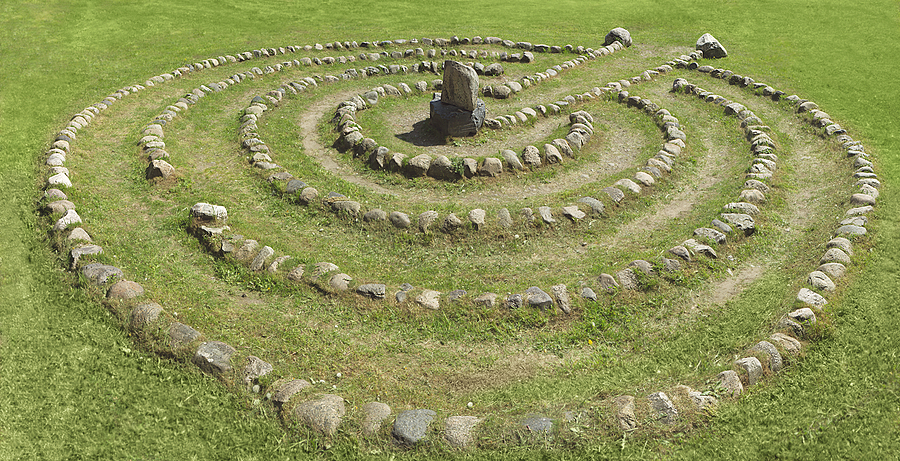
August 24 marked the 123rd anniversary of the birth of Jorge Luis Borges. That means it’s time for my yearly blog post dedicated to his life and work. In honor of his longtime roles as professor and lecturer, I’ve created a self-study/self-directed course that you can complete during 12 weeks this fall.
For simplicity, I have streamlined the content and have kept the readings to those contained in two of the major compendiums of his work: Selected Non-Fictions and Collected Fictions. Each week I have made a selection from the two books, with a short written assignment. Note: if you do not have access to these books, feel free to use translations from other editions, and/or translations available online. And if you can read editions in the original Spanish language, please do so!
Week 1: September 12, 2022
Nonfiction reading:
The Perpetual Race of Achilles and the Tortoise, Selected Non-Fictions, pp 43-47
Fiction reading:
Tlön, Uqbar, Orbis Tertius, Collected Fictions, pp 68-81
Writing exercise: In 250-500 words, compare the two readings, identifying any themes or ideas they might have in common
Week 2: September 19, 2022
Nonfiction reading:
A Defense of the Kabbalah, Selected Non-Fictions, pp 83-86
Fiction reading:
Pierre Menard, Author of the Quixote, Collected Fictions, pp 88-95
Writing exercise: In 250-500 words, compare the two readings, identifying any themes or ideas they might have in common
Week 3: September 26, 2022
Nonfiction reading:
I, a Jew, Selected Non-Fictions, pp 110-111
Fiction reading:
A Survey of the Works of Herbert Quain, Collected Fictions, pp 107-111
Writing exercise: In 250-500 words, compare the two readings, identifying any themes or ideas they might have in common
Week 4: October 3, 2022
Nonfiction reading:
A Fragment on Joyce, Selected Non-Fictions, pp 220-221
Fiction reading:
The Library of Babel, Collected Fictions, pp 112-118
Writing exercise: In 250-500 words, compare the two readings, identifying any themes or ideas they might have in common
Week 5: October 10, 2022
Nonfiction reading:
The Total Library, Selected Non-Fictions, pp 214-216
Fiction reading:
The Garden of Forking Paths, Collected Fictions, pp 119-128
Writing exercise: In 250-500 words, compare the two readings, identifying any themes or ideas they might have in common
Week 6: October 17, 2022
Nonfiction reading:
John Wilkins’ Analytical Language, Selected Non-Fictions, pp 229-232
Fiction reading:
Funes, His Memory, Collected Fictions, pp 131-137
Writing exercise: In 250-500 words, compare the two readings, identifying any themes or ideas they might have in common
Midterm
Visit the Borges Center/University of Pittsburgh website. Choose any two sections (for instance bibliographies, and interviews) and write 500-700 words about how the material in that section compares to the readings in the first part of the course.
Week 7: October 24, 2022
Nonfiction reading:
A New Refutation of Time, Selected Non-Fictions, pp 317-332
Fiction reading:
The Theme of the Traitor and the Hero, Collected Fictions, pp 143-146
Week 8: October 31, 2022
Nonfiction reading:
Personality and the Buddha, Selected Non-Fictions, pp 347-350
Fiction reading:
Death and the Compass, Collected Fictions, pp 147-156
Writing exercise: In 250-500 words, compare the two readings, identifying any themes or ideas they might have in common
Week 9: November 7, 2022
Nonfiction reading:
Pascal’s Sphere, Selected Non-Fictions, pp 351-353
Fiction reading:
The Immortal, Collected Fictions, pp 183-195
Writing exercise: In 250-500 words, compare the two readings, identifying any themes or ideas they might have in common
Week 10: November 14, 2022
Nonfiction reading:
On the Cult of Books, Selected Non-Fictions, pp 358-362
Fiction reading:
The Aleph, Collected Fictions, pp 274-286
Writing exercise: In 250-500 words, compare the two readings, identifying any themes or ideas they might have in common
Week 11: November 21, 2022
Nonfiction reading:
Kafka and His Precursors, Selected Non-Fictions, pp 363-365
Fiction reading:
Everything and Nothing, Collected Fictions, pp 319-320
Writing exercise: In 250-500 words, compare the two readings, identifying any themes or ideas they might have in common
Week 12: November 28, 2022
Nonfiction reading:
The Enigma of Shakespeare, Selected Non-Fictions, pp 463-472
Fiction reading:
Borges and I, Collected Fictions, p 324
Writing exercise: In 250-500 words, compare the two readings, identifying any themes or ideas they might have in common
Final
Return to the Borges Center/University of Pittsburgh website. Choose a different section from the one you included at the midterm, and write 700-1000 words about how the material in that section compares to the readings in the second part of the course. Please include some material about how the readings in both parts of the course deepened your understanding about Borges’ life, work, writing craft, and creative process.
Bibliography
Borges Center/University of Pittsburgh https://www.borges.pitt.edu/
Jorge Luis Borges: Collected Fictions, Translated by Andrew Hurley, Penguin Books, 1999; 565 pp.
Jorge Luis Borges: Selected Non-Fictions, Translated by Eliot Weinberger, Viking, 1999; 559 pp.
